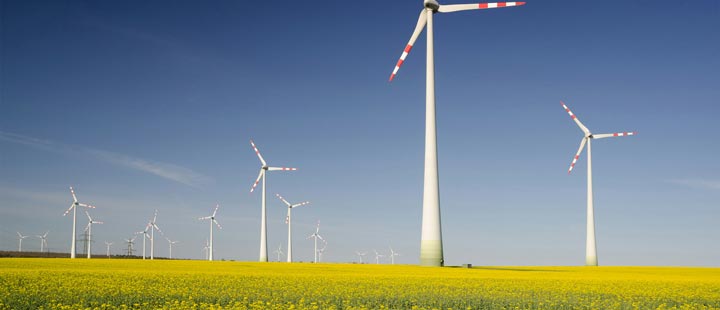
What is Environmental, Social and Governance investing?
ESG investing is the philosophy that investors should consider the impact that their investment decisions will have on the natural world and on society, as well as any financial gains that they might make.
What is ESG investing?
ESG investing means that investors consider environment, social and governance criteria alongside traditional financial factors. It represents a more holistic approach to investing that takes into account our impact on the natural world and society, as well as any potential financial gains.
Investors often refer to ESG investing interchangeably with other concepts such as ethical investing, socially responsible investing, green investing, sustainable investing and impact investing. All of these terms describe the idea that finance should support the broad long-term objectives of society rather than simply trying to make profits.
However, ESG investing is much broader. It offers both a statement of ambition for the world as it should be and provides objective and rigorous criteria for identifying investments that can help our journey towards these goals.
'$35.3 trillion in assets across five of the world’s major markets'
By 2020, approximately $35.3 trillion in assets across five of the world’s major markets – Australia & New Zealand, Canada, Europe, Japan and the United States – were invested in accordance with ESG principles, according to data from the Global Sustainability Investment Alliance. This represented a 15% increase over the previous two years.
What does ESG stand for?
ESG stands for “Environmental, Social and Governance”. These three areas sum up the key ways in which we can act to protect the natural world, ensure social progress and improve global governance standards. Each area covers a wide range of ESG factors on which the non-financial performance of a company or an investment project can be measured.
- Environmental factors refer to the impact that a company has on the natural environment. This includes issues such as pollution (carbon emissions, toxic chemicals and metals, packaging and other waste), the use of natural resources (water, land, trees) and the consequences for biodiversity (the variety of life on Earth), as well as attempts to minimise our environmental footprint (energy efficiency, sustainable farming, green buildings).
- Social factors are those that affect people – whether employees, customers or society at large. They cover matters such as health and safety for employees or labour and welfare standards for other workers employed in the company’s wider supply chain, as well as product safety for consumers or privacy and data security for its users. Increasingly, investors also want to see that companies are actively committed to overcoming inequality and discrimination, both through fair treatment of employees and ensuring that no social groups are excluded from access to critical products and services.
- Governance factors relate to whether a company manages its business in a responsible way. This takes into account the ethical requirements of being a good corporate citizen, such as anti-corruption policies and tax transparency, as well as traditional corporate governances concerns such as managing conflicts of interest, board diversity and independence, quality of financial disclosures and whether minority shareholders are treated fairly by controlling shareholders.
A brief history of ESG
The ideas that underpin ESG investing go back a long way. Leading thinkers and economists have warned of the dangers of environmental damage or the social ills caused by certain products or business practices for many centuries, including the theologian John Wesley (The Use of Money, 1744) and the economist Adam Smith (The Wealth of Nations, 1776).
The first investment vehicle that explicitly identified itself as a “responsible” investor was the US Pioneer Fund, which launched in 1928. This avoided investing in sectors such as alcohol and tobacco. Public discussion about the damage that unchecked economic growth was causing through pollution and environmental degradation began to grow substantially in the 1960s, 1970s and 1980s.
In particular, the foundation of the interdisciplinary Club of Rome network in 1968 and its inaugural report (The Limits to Growth, 1972) attracted considerable public attention. This was a key step in changing the paradigm of how our economic activities interact with the natural world.
By the 1990s, the idea that companies, organisations and investors should be taking account of environmental and social costs became more widely recognised, with the arrival of the first “socially responsible” stock index, the Domini 400 Social index, and the “triple bottom line” (also known as TBL and 3BL) or “people, planet, profits” accounting framework, under which organisations began to take account of their social and environmental performance in addition to their financial results.
ESG: a new abbreviation for a new century
The formal representation of these issues under the ESG definition began in 2004, when the abbreviation was first used in a report by the United Nations (UN) Environment Programme Finance Initiative (Who Cares Wins, 2004).
Just two years later, the UN launched its “Principles for Responsible Investment”, a framework for incorporating ESG issues into investment. This began with 63 signatories overseeing $6.5 trillion in assets, and had grown to more than 3,000 signatories with more than $100 trillion in assets by 2020.
Multinational support for ESG objectives then took a major step forward in 2015, when the 193 countries of the UN General Assembly adopted the UN Sustainable Development Goals (SDGs). These set out 17 interlinked global goals intended to set the world on a path towards a more sustainable and equal future.
The SDGs cover a wide range of ESG factors, including the environment (such as tackling climate change and reducing waste), social progress (such as education, health and gender equality) and robust governance (such as developing justice and strong institutions).
Achieving the SDGs could potentially create opportunities worth an estimated $12 trillion by 2030, according to the Business and Sustainable Development Commission.
ESG history

2020
Signatories to the UN Principles for Responsible Investment now exceed 3,000 asset managers and asset owners, with more than $100 trillion in assets under management.

2018
Approximately $31 trillion of assets across five of the world's major markets are invested based on ESG principles.

2015
Adoption of the Sustainable Development Goals (SDGs) by 193 countries of the UN General Assembly. In the same year, the Paris Agreement establishes a new framework for greenhouse gas reductions.

2006
UN launches "Principles for Responsible Investment," which is backed by the world's largest investors.

2004
The abbreviation ESG is first used in a report published by the UN Environment Programme Finance Initiative.

1990
Domini 400 Social Index (MSCI KLD 400) becomes the world's first "socially responsible" stock index, aimed at helping socially conscious investors weigh social and environmental factors in their investment choices.

1980
Two UN agencies publish a paper co-authored by the World Wide Fund for Nature (WWF) entitled "Living Resource Conservation for Sustainable Development".

1972
United Nations conference in Stockholm on the human environment first discusses the trade-offs and challenges of sustainability, economic growth and development.

1968
Founding of the Club of Rome, which goes on to publish "The Limits to Growth" four years later.

1928
Launch of first recorded "responsible" investment vehicle, the US Pioneer Fund, which declines investments in alcohol and tobacco industries due to their negative effect on human health.

1800
German scientist Alexander von Humboldt notices that the Valencia lake in Venezuela has started drying up after nearby woodlands were felled to obtain arable land.

1776
Scottish economist Adam Smith publishes The Wealth of Nations, which praises free markets and the profit motive, but warns against social inequality and business practices such as cartels.

1744
English cleric John Wesley sets out ethical principles for business in his sermon The Use of Money, which tells Christians that it is their duty to “gain all we can”, but not by “causing injury to another.

1713
German mining official and forestry expert Hans Carl von Carlowitz pioneers sustainable conservation with the warning: "Don't fell more trees than can grow back."
Explore further
Find out more about how we can help and the ESG investing services we offer in your region.
ESG trends and insights

ESG
ESG investment performance: drivers and management
This PERSPECTIVES Special explores the nuances behind the numbers, showing that ESG performance depends heavily on how it's defined, implemented and measured. Read for more details today.
Sep 10, 2025

Feature article
Aussie eDNA: our sampling programme reaches Sydney Harbour
Sydney Harbour was one of the destinations for Deutsche Bank’s global eDNA sampling programme. We spoke to scientist Dr. Vanessa Pirotta about how this collaborative initiative can contribute to our knowledge of local marine life.
Jul 28, 2025

Feature article
Understanding our oceans: Deutsche Bank eDNA testing programme reaches Alaska
Deutsche Bank’s eDNA testing programme continues, giving new insights on marine life around the world.
May 23, 2025

ESG Special
ESG and Sustainability Market Monitor
The client-ready ESG and Sustainability Market Monitor helps you stay informed and up-to-date on the latest developments in environmental, social and governance (ESG) investing and the transition to more sustainable economies.
Apr 14, 2025

Jargon-busting series
What are nature-based solutions?
If you can leverage the power of nature to support human flourishing, that’s a nature-based solution. Like tree canopies that combat urban heat and pollution, or coral reefs that limit coastal storm surges, nature-based solutions rely on the inherent value of the natural world to improve human environments.
Dec 17, 2024

Jargon-busting series
What is the sustainable transformation?
Learn more about the sustainable transformation in our jargon busting piece, and how business, practices and the economy are being reshaped.
Nov 26, 2024
.webp)
PERSPECTIVES Special
ESG Survey 2024: Investing in the sustainable transition
Our 4th annual ESG Survey shows that investors are already investing in the sustainable transition, with evolving views on what are likely to be the leading future sectors and return drivers. Fueled by pragmatism as well as principles, ESG investment is happening. Read more.
Nov 12, 2024

Feature article
New Blue Perspectives: Monitoring Ocean Biodiversity
In this report, we describe initial findings from our research project to monitor ocean biodiversity. Working with our partners, we used environmental DNA (eDNA) techniques to analyse ocean water samples.
Oct 10, 2024

Jargon-busting series
ESG and sustainability: what do investors need to know about how they differ?
A look at the similarities and differences between ESG and sustainability, why they both matter to investors and how they are shaping the future of business.
Oct 04, 2024

Jargon-busting series
What are Life Pillars?
Life Pillars provide essential resources and services crucial for the prosperity of humanity and the global economy — and yet they are often undervalued or taken for granted.
Aug 01, 2024


